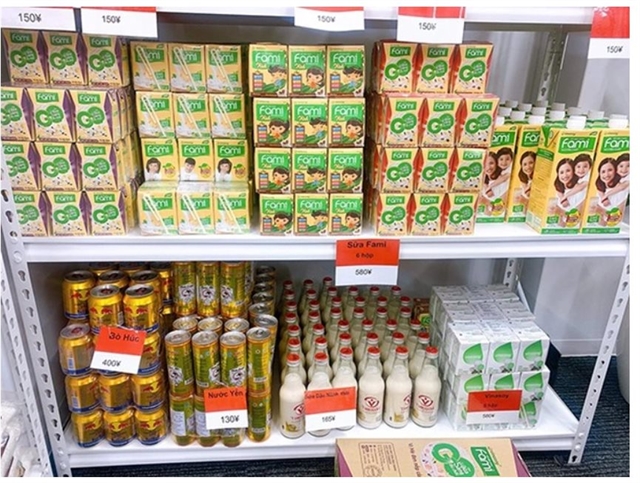Vietnam's Ministry of Industry and Trade (MoIT) has announced that the country's trade representative offices overseas will assist businesses and exporters in keeping up-to-date with local health and sanitary standards and protecting Vietnamese brands from misinformation.

The Ministry of Industry and Trade (MoIT) has announced that the country's trade representative offices overseas will assist businesses and exporters in keeping up-to-date with local health and sanitary standards and protecting Vietnamese brands from misinformation.
Recently, Japanese NHK News broadcast a segment in which Vietnamese soy milk products (Fami Calcium Soy Milk produced by Vinasoy) were destroyed in Chiba City after testing positive for Coliform, a bacteria that may cause mild stomach issues after prolonged exposure for 4-5 days in humans. Following this incident, social media channels in Japan started spreading rumours that the Vietnamese soy milk brands contained bacteria that cause cancer.
MoIT has been in contact with the manufacturer Vinasoy, its Japanese business partner Next Trading, as well as Chiba City's health and sanitary authority. The ministry stated that official test results and reports from Chiba City did not find any bacteria or content in the products that may potentially cause cancer. The Viet Nam National Institute for Food Control also conducted tests and reached a similar conclusion.
Vinasoy also stated there was no trace of Coliform in its own tests and that the company strictly followed all requirements set by the Japanese authorities.
To minimise the risk of similar incidents in the future, producers must strictly follow food safety and sanitary regulations set by the Vietnamese health authority and export markets. The trade representative offices overseas will act as eyes and ears for Vietnamese businesses and their partners to give them early warnings. Additionally, they will help companies to connect with local authorities and keep up-to-date with local food safety regulations.
The ministry stressed the importance of building a set of health standards for export products in line with international markets, improving testing facilities, and conducting a comprehensive review and risk assessment for each export product. According to the ministry, these measures will not only bring up the country's food standards but also ease trade barriers with international markets. — VNS
- Tags
- Vietnamese brands





